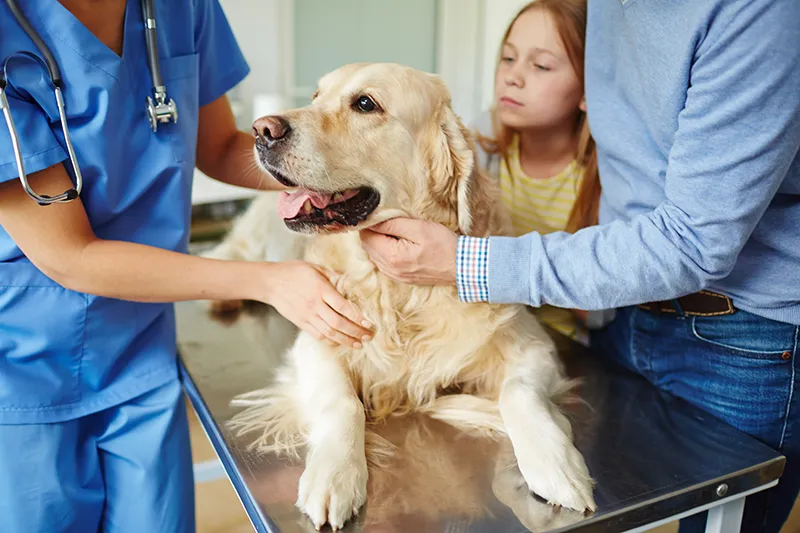Your canine companion may not be able to speak, but he’s constantly communicating with you—especially when something’s not quite right. At Galena Animal Medical Clinic, our goal is to help dog parents in Galena, MD recognize the signs that their pup may need attention. One of the most important steps in preventive care is knowing when it’s time for a dog wellness exam.
Regular wellness exams are essential in keeping your furry pal happy and healthy. These checkups help our veterinary team spot subtle changes in behavior, weight, or health status that might indicate a larger issue. If you’re wondering how often dogs need wellness exams, or how to know when Fido’s due for one, this guide is for you.
Why Wellness Exams Are a Must
Routine dog wellness exams are like yearly physicals for humans. They allow us to establish a baseline for your pup’s health and monitor any shifts over time.
At our Galena, MD animal hospital, a wellness exam typically includes:
- A full physical exam (checking ears, eyes, teeth, heart, lungs, joints, and more)
- Vaccination review and booster updates
- Parasite screening and prevention
- Nutritional and behavioral consultation
Whether your pup is a bouncy adolescent or a wise senior, routine vet visits for dogs are tailored to his life stage.
Signs Your Dog Might Be Due for a Wellness Exam
So, what exactly should dog parents watch for between visits? These signs could mean it’s time to schedule a trip to our Galena, MD pet clinic:
1. Changes in Appetite or Weight
If your pup is suddenly refusing food or devouring everything in sight, it’s worth noting. Sudden weight gain or loss could be linked to thyroid issues, metabolic disorders, or underlying illnesses.
2. Low Energy or Excessive Tiredness
While every dog has lazy days, a consistent drop in energy could mean something is brewing under the surface—especially in older dogs.
3. Bad Breath or Dental Changes
That “doggy breath” might not be harmless. Dental issues like tartar buildup, gum disease, or even tooth root abscesses can go unnoticed without a dog wellness exam.
4. Limping or Stiffness
Arthritis, ligament injuries, and other mobility concerns are common in aging dogs. If your furry bestie starts struggling to climb stairs or get into the car, it’s time to schedule a senior dog health checkup.
5. Excessive Scratching, Biting, or Shedding
Skin irritation or sudden hair loss might mean your pup has an allergy, parasite, or infection that needs treatment.
6. Frequent Urination or Accidents in the House
Urinary tract infections, kidney problems, or diabetes can cause noticeable changes in urination. Let us help you rule out anything serious.
7. Behavioral Changes
If your typically cuddly pooch is suddenly irritable, withdrawn, or aggressive, he may be in pain or feeling unwell.
How Often Do Dogs Need Wellness Exams?
One of the most common questions we hear at Galena Animal Medical Clinic is, how often do dogs need wellness exams?
- Puppies (under 1 year): Every 3–4 weeks for vaccines, deworming, and growth tracking
- Adult Dogs (1–7 years): Once per year
- Senior Dogs (7+ years): Twice per year for senior dog health checkups
Your dog’s breed, size, and medical history may also affect the frequency. Our veterinarians in Galena, MD can tailor a schedule that fits your pup’s needs.
What Happens During a Wellness Exam?
You may think your four-legged buddy seems perfectly healthy—but even subtle issues can be spotted during a thorough exam. During your visit, our Galena, MD veterinarians will:
- Check vital signs
- Listen to the heart and lungs
- Evaluate eyes, ears, and teeth
- Palpate the abdomen
- Assess joints and mobility
- Discuss nutrition, exercise, and behavior
- Review parasite and vaccination protection
We’ll also ask about any changes you’ve noticed at home. You know your furry BFF best, and your observations are critical.
Wellness Care for Senior Dogs
Aging pups need extra TLC. If your dog is showing signs of aging—like slower movement, weight changes, or cloudy eyes—a senior dog health checkup can make all the difference. Our team is here to guide you through arthritis management, dental care, cognitive support, and more.
Fun fact: Dogs are considered “senior” around 7 years of age—but that number drops for giant breeds like Great Danes or Mastiffs, who may reach their golden years at just 5.
When in Doubt, Call Your Galena, MD Vet
Still not sure if your pup needs an exam? It’s always better to err on the side of caution. A quick wellness check can ease your mind—or catch a problem early before it becomes serious.
Looking for a great veterinary clinic near me in Galena, MD? We’re right here with wagging tails and warm hearts.
FAQ About Dog Wellness Exams
How long does a wellness exam take?
Most visits take about 30–45 minutes, depending on your dog’s age and any concerns discussed.
Do I need to bring anything to the appointment?
Please bring any medical records, a stool sample if possible, and a list of questions or concerns.
Can my dog get vaccines during a wellness exam?
Absolutely. Wellness visits are a perfect time to ensure your pup is up to date on core and lifestyle vaccines.
Are wellness exams necessary if my dog seems healthy?
Yes! Preventive care is the key to catching problems early—even before symptoms start.
How often do older dogs need wellness exams?
Senior dogs should be examined every 6 months to manage age-related conditions and maintain quality of life.
Schedule an Appointment at Our Galena, MD Pet Clinic
If you’re seeing any of the signs listed above—or it’s just been a while—book a dog wellness exam at Galena Animal Medical Clinic in Galena, MD. Our friendly veterinarians and vet clinic staff are here to help your four-legged friend stay healthy, active, and full of tail wags.
Are you looking for a great veterinary clinic in Galena, MD? Try searching for a vet near me, or skip the search and give us a call today.
Your furry pal deserves excellent care—and a simple dog wellness exam could be the key to a longer, healthier life. Schedule your dog’s wellness exam today.
This blog is for informational purposes only. Always consult your veterinarian for professional medical advice tailored to your pet’s individual needs.







!Social Media Icons